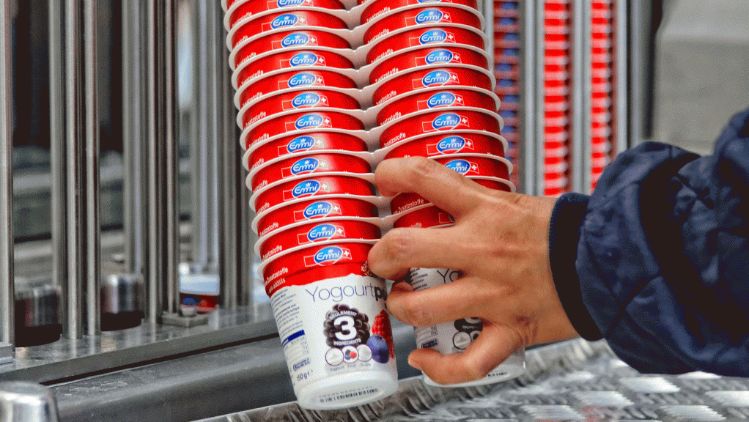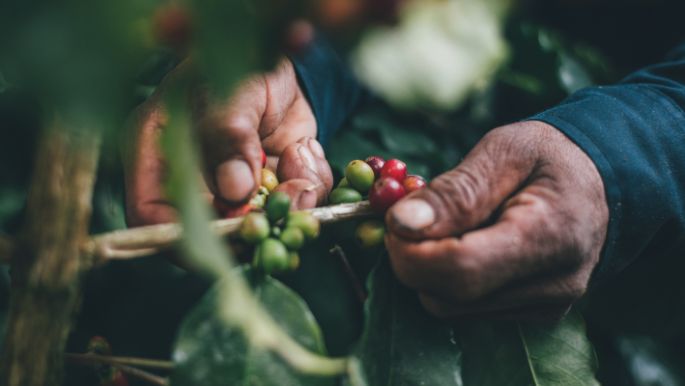
The fight against plastic
Single-use packaging - especially plastic - is becoming increasingly frowned upon. The solution to this problem is anything but simple. Because plastic is not so easy to replace in food packaging. That is why Günter Englmeier’s development team is taking a different tack: the circular economy.
Is flight shame now being followed by plastic shame? Quite possibly
For some time now, Emmi has also had to apologise to consumers on a regular basis for its plastic packaging. The problem is not so much the individual materials, but rather the incomplete recycling systems in many countries – including Switzerland.

"Glass performs best for consumers"
From a consumer perspective, glass performs best; although this material comes with its own advantages and disadvantages, specifically energy consumption in production. This example also reveals an all-too-common problem: Consumers' wishes and their everyday behaviour do not always coincide. Despite the plastic bashing on social media, Emmi is experiencing anything but a boom for Toni yoghurt, which is traditionally sold in glass containers.
Recyclability as the ultimate goal
The long-term goal of doing away with plastic altogether is not only utopian, but also impracticable. The advantages of such materials in the food industry are simply too numerous. Unfortunately there is no nationwide plastic collection system in Switzerland except for PET drink containers and other bottles.
But all plastic packaging is just as valuable and should not be disposed of after a single use. Of course, PET used elsewhere would also be recyclable, as would polyethylene (PE). The Emmi Caffè Latte cup would already be largely recyclable today. But more often than not there is no recycling system in place.
“By 2025 all of our packaging should be recyclable.“
Focus on monomaterials
The packaging problem is so multifaceted that it cannot be solved by one company working in isolation. For Emmi, however, doing nothing is not an option. In the future we will see measures on two main fronts. “By 2025 all of our packaging should be recyclable,” says packaging expert Bendicht Zaugg, who will take on full-time responsibility for sustainability in this area from 2020.
He continues: “We are focusing on monomaterials. We will also replace polystyrene (PS) wherever possible because only a few countries have a recycling system for this. What's more, PS will be banned in the UK – a not-insignificant market for Emmi – from 2022.
Secondly, Emmi is committed to improving recycling systems in Switzerland, specifically through organisations promoting a circular economy and recycling management such as Drehscheibe Kreislaufwirtschaft, Verein Prisma Innovation or Verein Getränkekarton Schweiz.
“Emmi is an important and well-known company in Switzerland. We can use this clout to join forces with other companies to exert an influence on politics, for example,” says Gerold Schatt, Head of Sustainability, explaining the company's commitment. However, all participants in the value chain need to come together if we are to solve the packaging and waste problems facing us.


